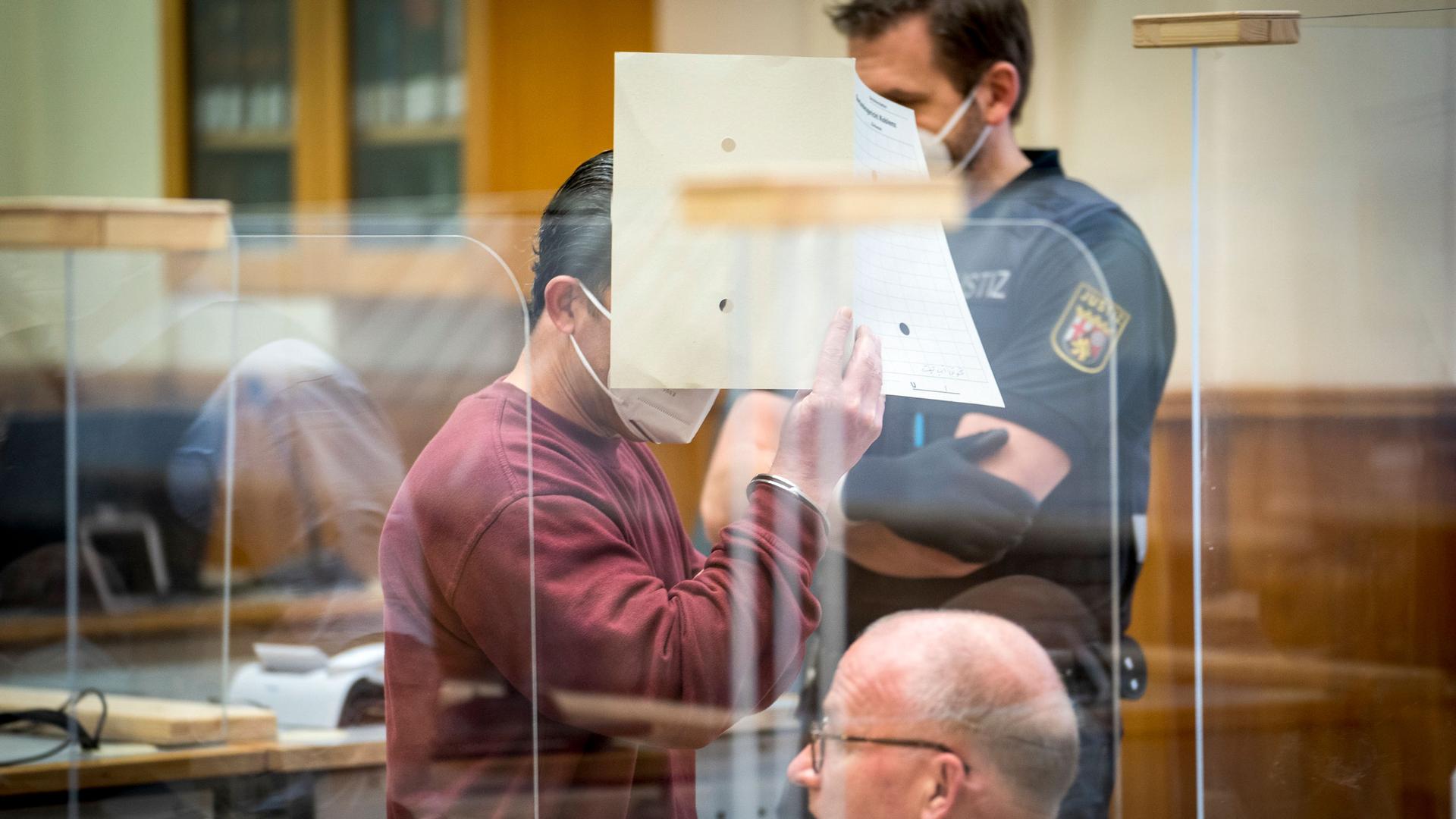Conviction in landmark case over Syrian government torture
Syrian defendant Eyad Al-Gharib hides his face as he arrives to his hear his verdict in a court room in Koblenz, Germany, Feb. 24, 2021.
Syrian intelligence officer Eyad Al-Gharib was convicted Wednesday by a German court of facilitating the torture of prisoners in a landmark ruling that human rights activists hope will set a precedent for other cases.
Al-Gharib, who was convicted of accessory to crimes against humanity, was sentenced by to 4 1/2 years in prison.
It was the first time that a court outside Syria ruled in a case alleging Syrian government officials committed crimes against humanity. German prosecutors invoked the principle of universal jurisdiction for serious crimes to bring the case that involved victims and defendants who were in Germany.
The Britain-based Syrian Observatory for Human Rights said the verdict represented a “historic juncture” that would send “real messages to all those who committed war crimes and crimes against humanity against the Syrian people and gives hope to the victims and their families that right will prevail.”
The group, which has documented the decade-long war, urged Syrian refugees in Europe to come forth with any evidence and documents to courts to help more such cases.
Al-Gharib could have faced more than a decade behind bars, but judges took into account mitigating factors, including his testimony in court.
The 44-year-old was accused of being part of a unit that arrested people following anti-government protests in the Syrian city of Douma and took them to a detention center known as Al Khatib, or Branch 251, where they were tortured.
Al-Gharib went on trial last year with Anwar Raslan, a more senior Syrian ex-official who is accused of overseeing the abuse of detainees at the same jail near Damascus.
Raslan is accused of supervising the “systematic and brutal torture” of more than 4,000 prisoners between April 2011 and September 2012, resulting in the deaths of at least 58 people.
During the trial, al-Gharib testified against Raslan, implicating him in more than 10 deaths of prisoners. A verdict in Raslan’s case is expected later this year.
The court also considered photographs of thousands of alleged victims of torture by the Syrian government. The images were smuggled out of Syria by a former police officer, who goes by the alias of Caesar.
“Today’s verdict is the first time a court has confirmed that the acts of the Syrian government and its collaborators are crimes against humanity,” said Patrick Kroker, a lawyer with the European Center for Constitutional and Human Rights, which represented multiple survivors at the trial.
“Testimony by torture survivors and intelligence officers, as well as the Caesar photos, prove the scale and systemic nature of enforced disappearances, torture and sexual violence in Syria,” he said. “The relevance of this evidence extends far beyond the proceedings in Koblenz.”
Delivering the oral verdict, the presiding judge made it clear that al-Gharib’s crimes were part of the Syrian government’s systematic abuses against its own population. Syrian officials did not testify during the 60-day trial.
The court concluded that al-Gharib’s unit, which was under Raslan’s command, was involved in chasing down and detaining at least 30 people following a demonstration in Douma, and then bringing them to the detention center where they were tortured.
Al-Gharib, who had the rank of sergeant major until he defected, left Syria in 2013 and came to Germany in 2018. Both men were arrested a year later.
Some rights groups have raised questions about the trial, noting that government defectors like Al-Gharib may not realize that statements they make during asylum applications may be used against them.
Mohammad Al-Abdallah, director of the Washington-based Syria Justice and Accountability Center and a former prisoner in Syria, said Al-Gharib was a low-ranking officer with little value in the case against him.
He suggested that putting defectors like Raslan and Al-Gharib in prison would please the Assad government, “because this will deter anyone else from defecting or joining the opposition or supplying information to human rights groups.”
But Wassim Mukdad, a Syrian survivor and co-plaintiff in Raslan’s trial, said while al-Gharib was “just one small cog in the vast Syrian torture apparatus” the verdict against him was important.
“I hope it can shed light on all of the Assad regime’s crimes,” he said. “Only then will the trial really be a first step on this long road to justice for myself and other survivors.”
The European Center for Constitutional and Human Rights, which supports 29 survivors in the case against Raslan, of whom 14 are represented as co-plaintiffs in that case, is working to bring further cases against Syrian officials to trial in Germany, Austria, Sweden and Norway.
By Frank Jordans/AP
